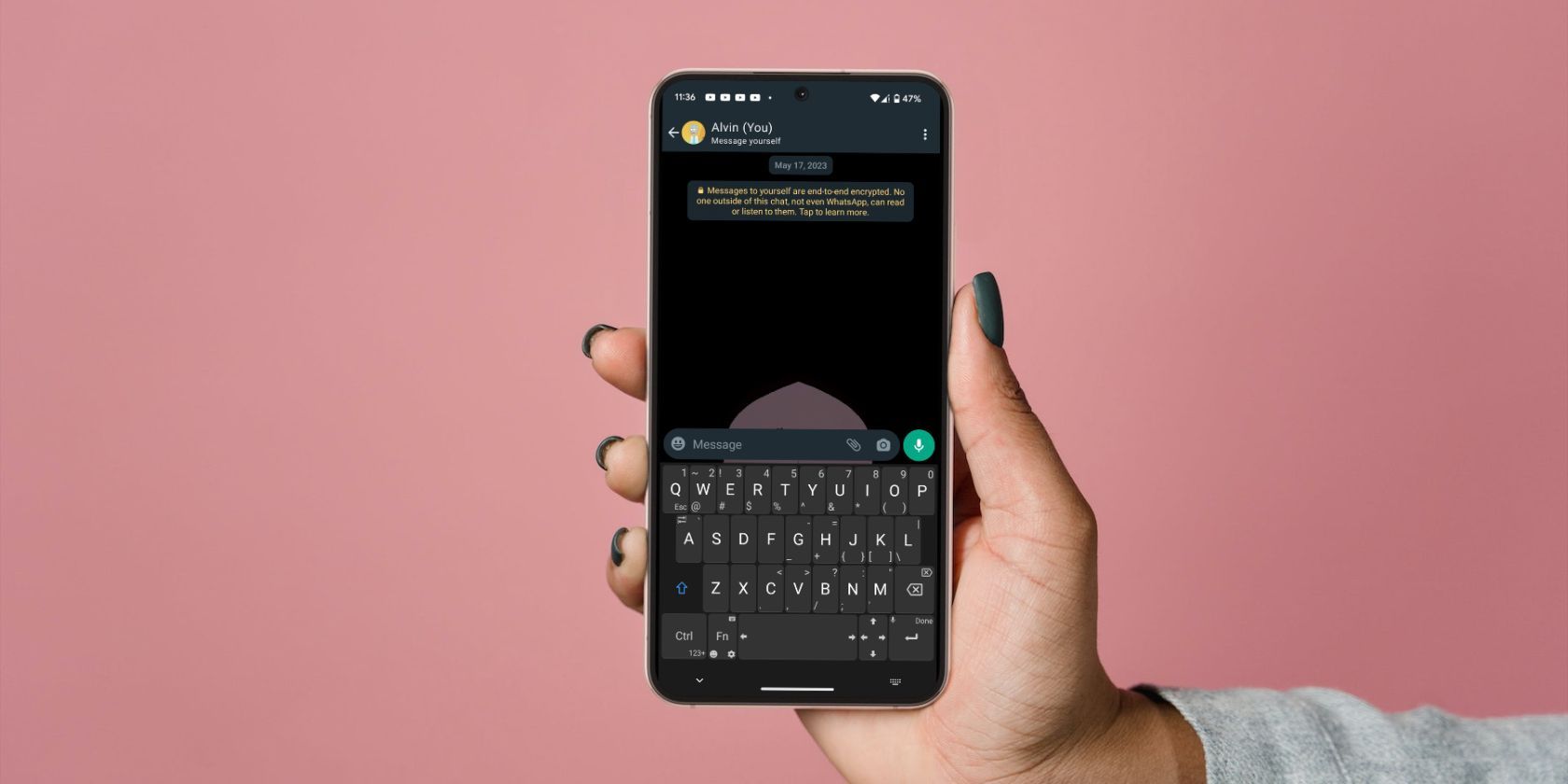In late 2016, Google began including its own Gboard as the default keyboard on Android phones, incorporating many of your favorite features from other keyboard apps. While it may be one of the best Android keyboards, it also has the potential to track everything you type. Google already knows a lot about you.
If you'd rather not hand that kind of data over to Google—or any other third party—then you may want to give these open-source Android keyboards a chance.
1. AnySoftKeyboard
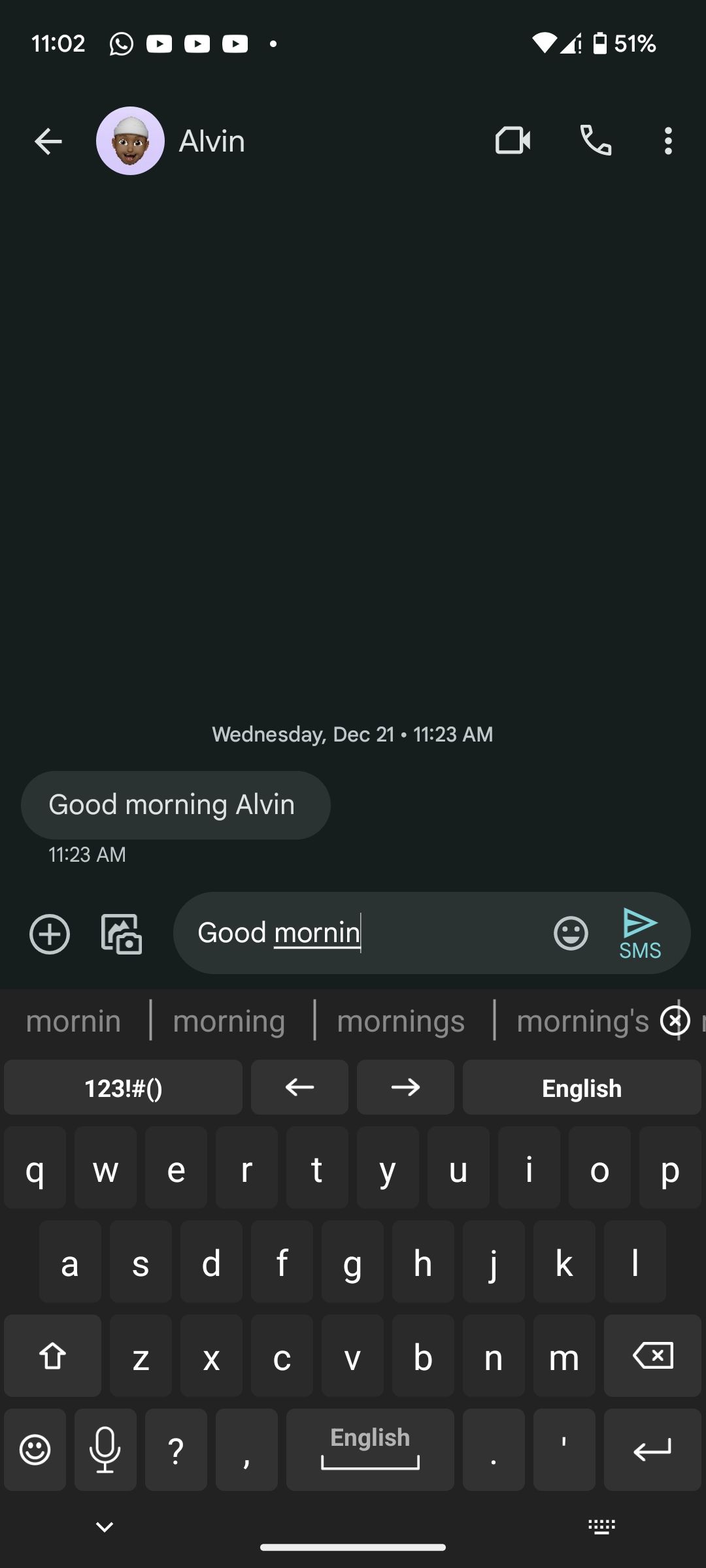
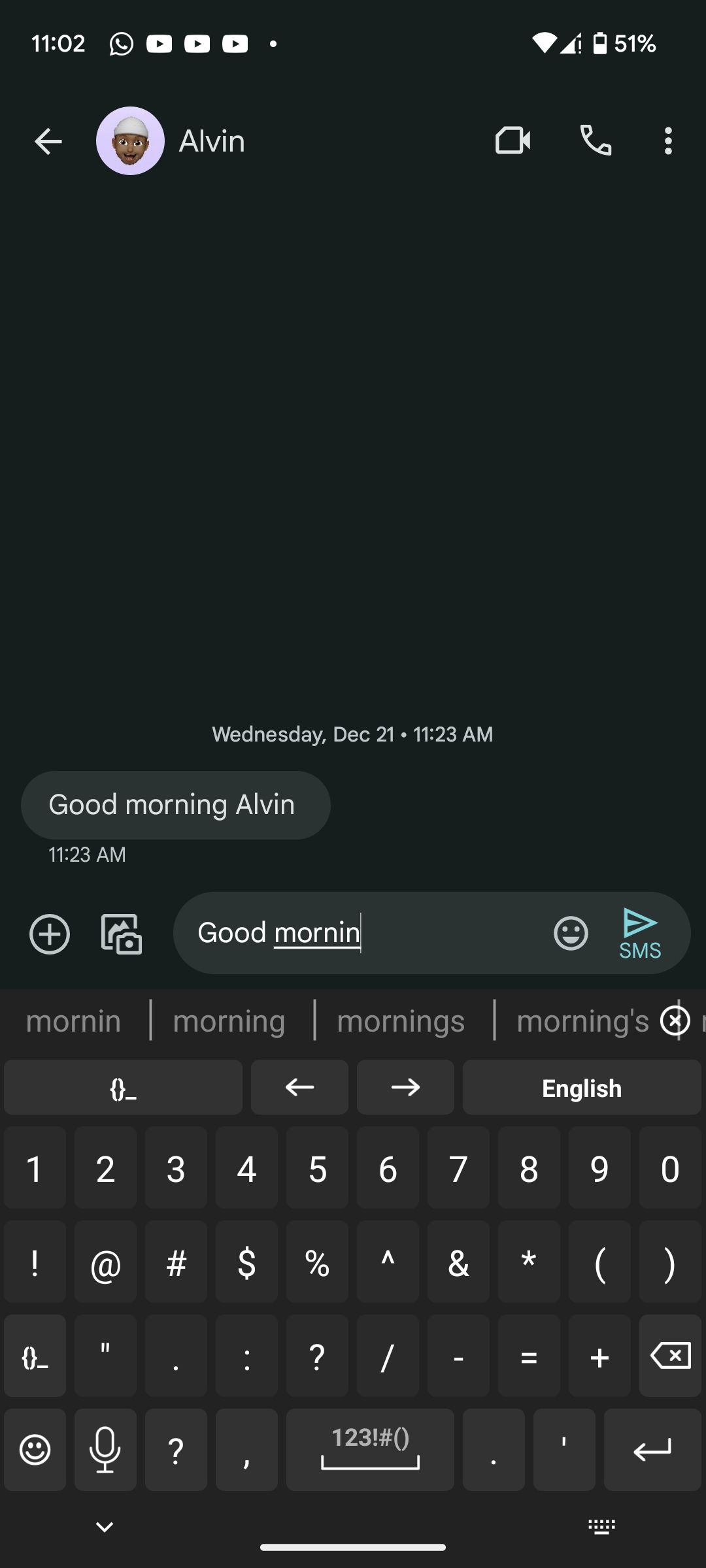
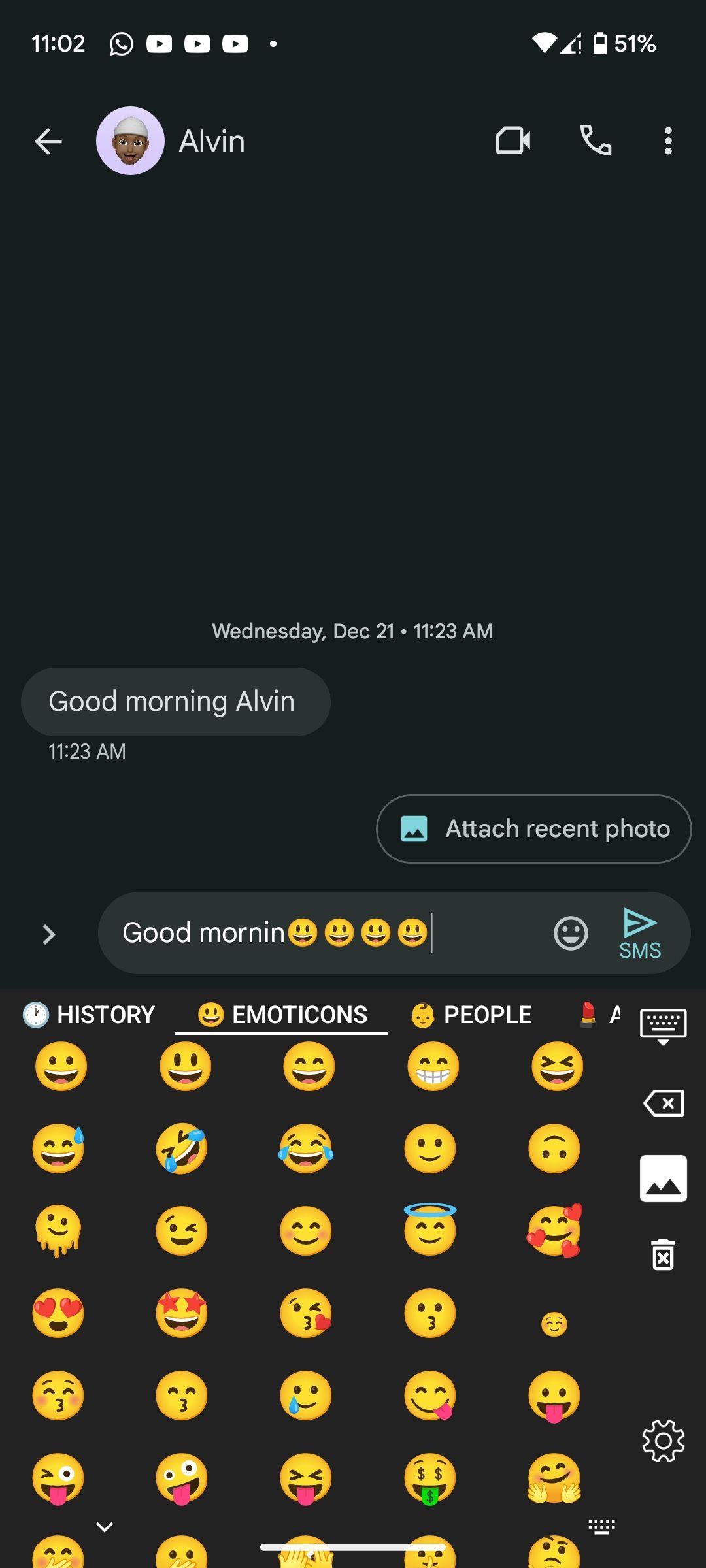
People often assume that choosing an open-source alternative means forgoing some of the best features of proprietary software.
AnySoftKeyboard proves that isn't the case, as it is one of the most feature-packed alternative Android keyboards available. Alongside support for over 30 languages, AnySoftKeyboard includes all the predictive features you'd expect from a modern keyboard, as well as custom dictionaries and voice input.
There are multiple themes for you to make the keyboard your own, and almost every part of the interface is customizable. Additionally, AnySoftKeyboard has gesture typing support, an alternative way to type on your Android phone.
Download: AnySoftKeyboard (Free)
2. Tiny Keyboard
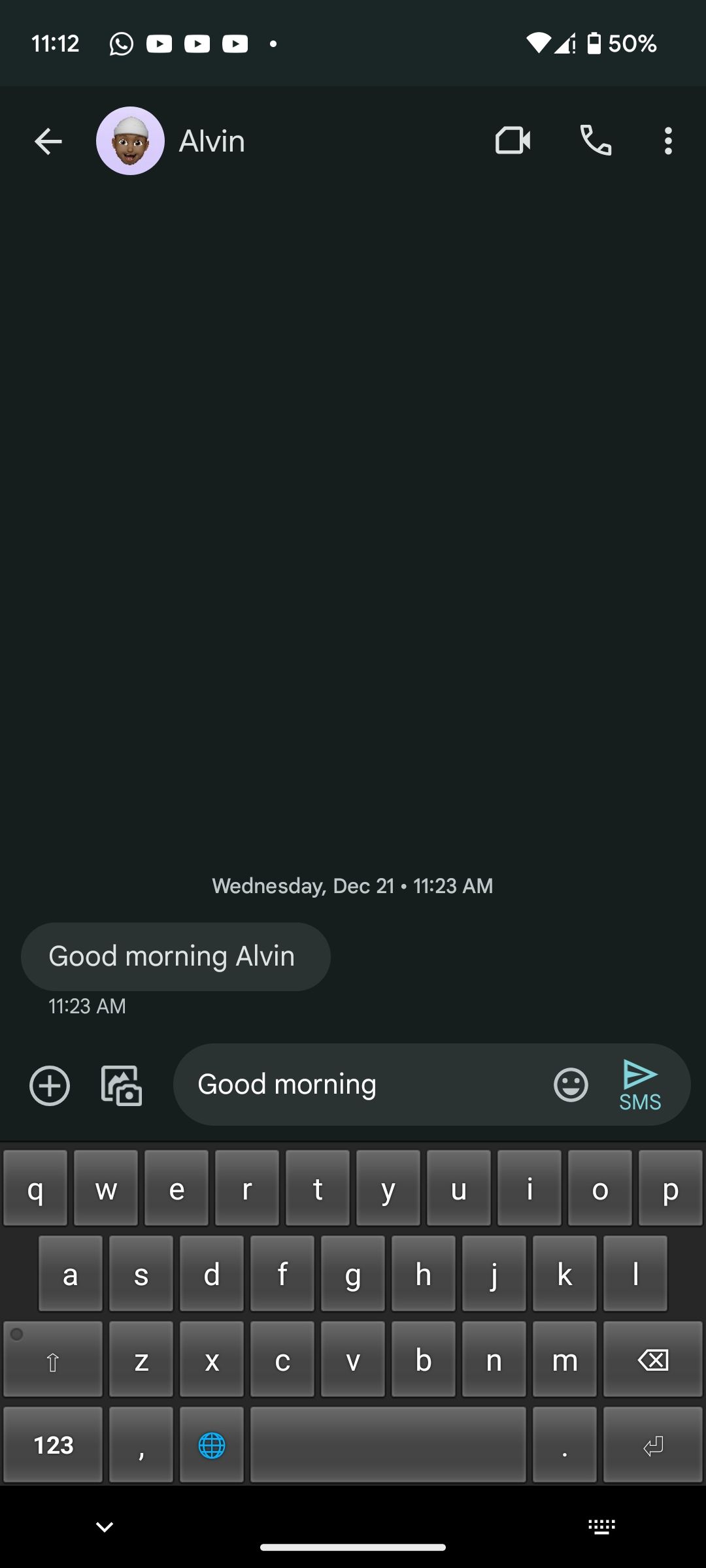
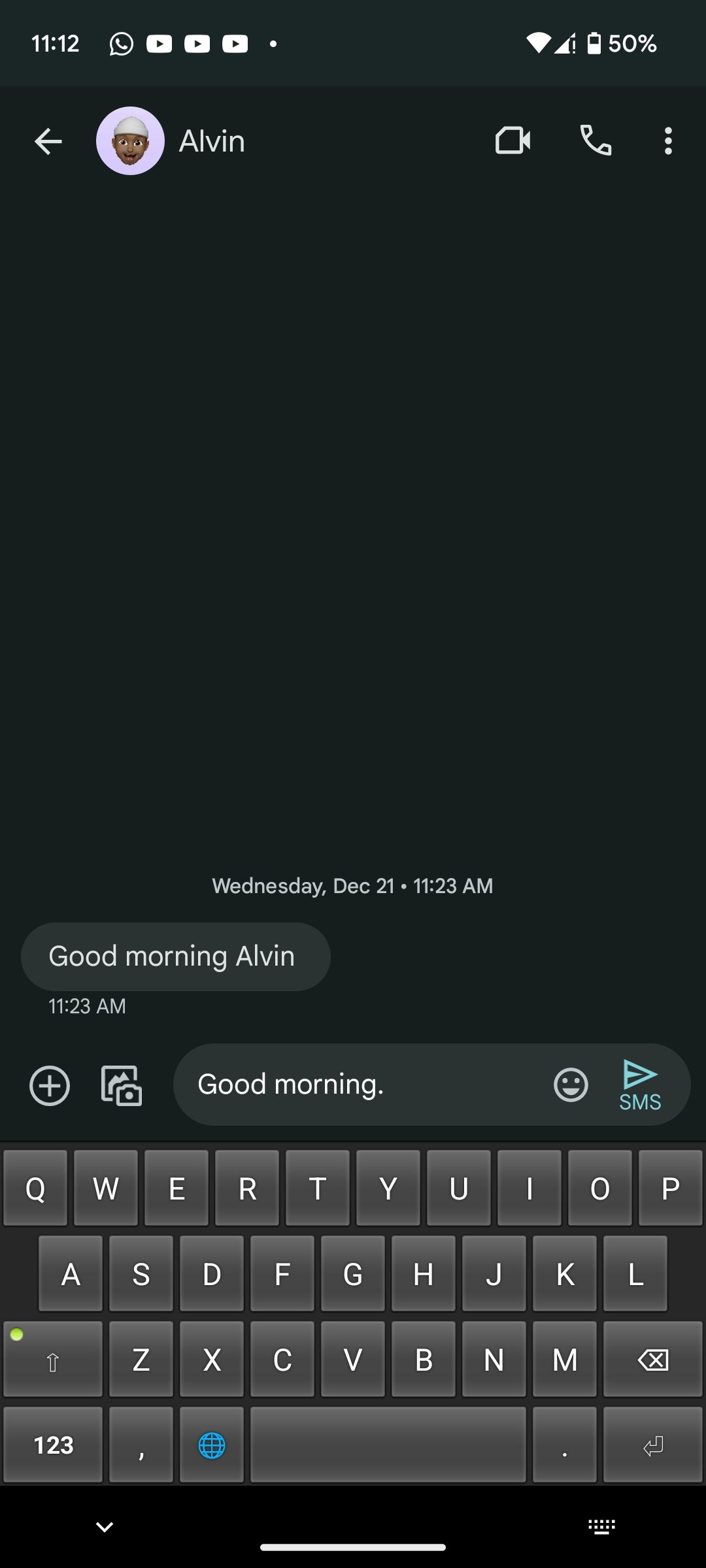
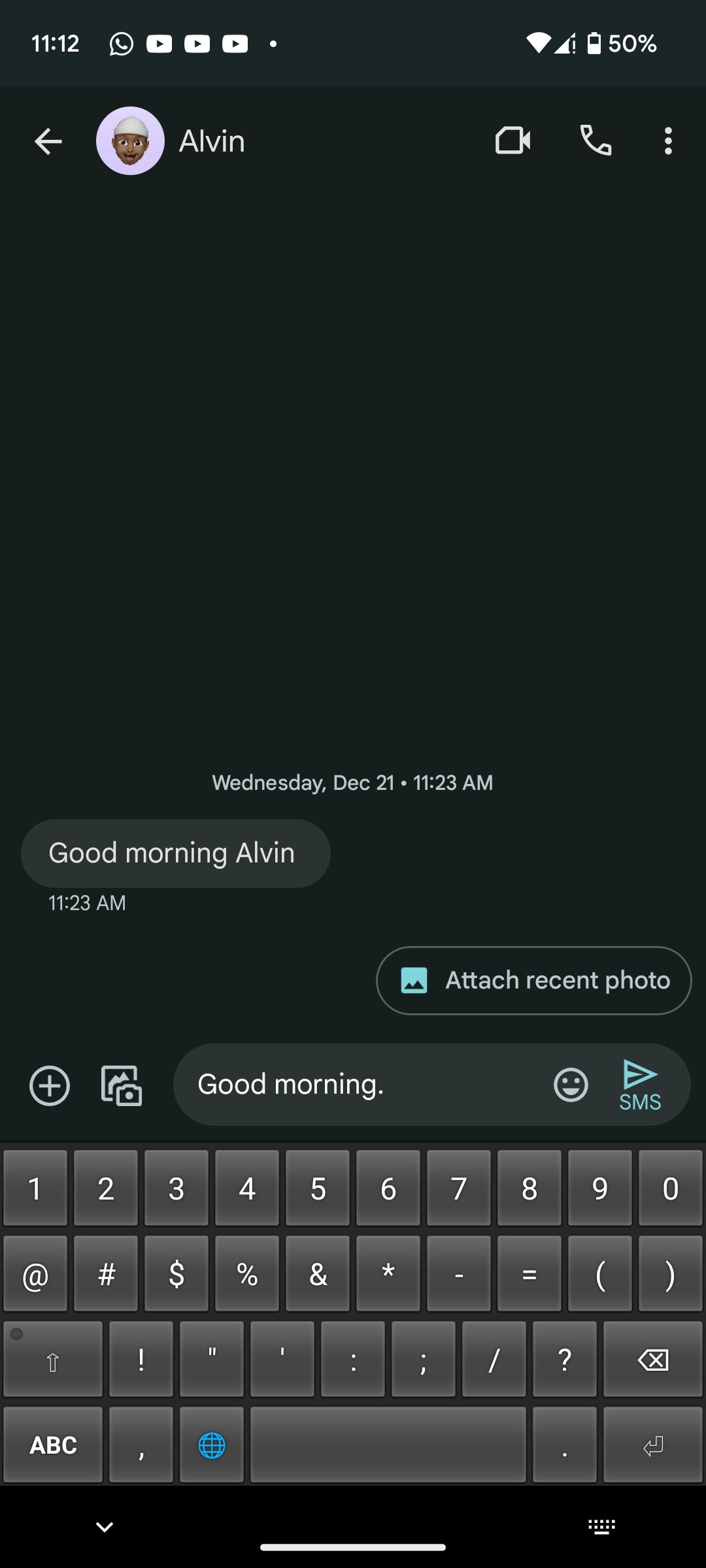
Tiny Keyboard is a simple open-source keyboard app that has been around since 2019. The interface is simple and straightforward and uses the QWERTY layout. It doesn't include all the fancy features you'll find on the best Android keyboard apps, like autocorrect, multiple language support, customization, emoji support, and whatnot.
But missing some of these features may not be a big deal since some apps, like messaging apps, already have them. For instance, WhatsApp Messenger and Google's Messages app have built-in emoji, GIF, and sticker support. If you're looking for a simple open-source app, Tiny Keyboard is a great choice.
Download: Tiny Keyboard (Free)
3. OpenBoard
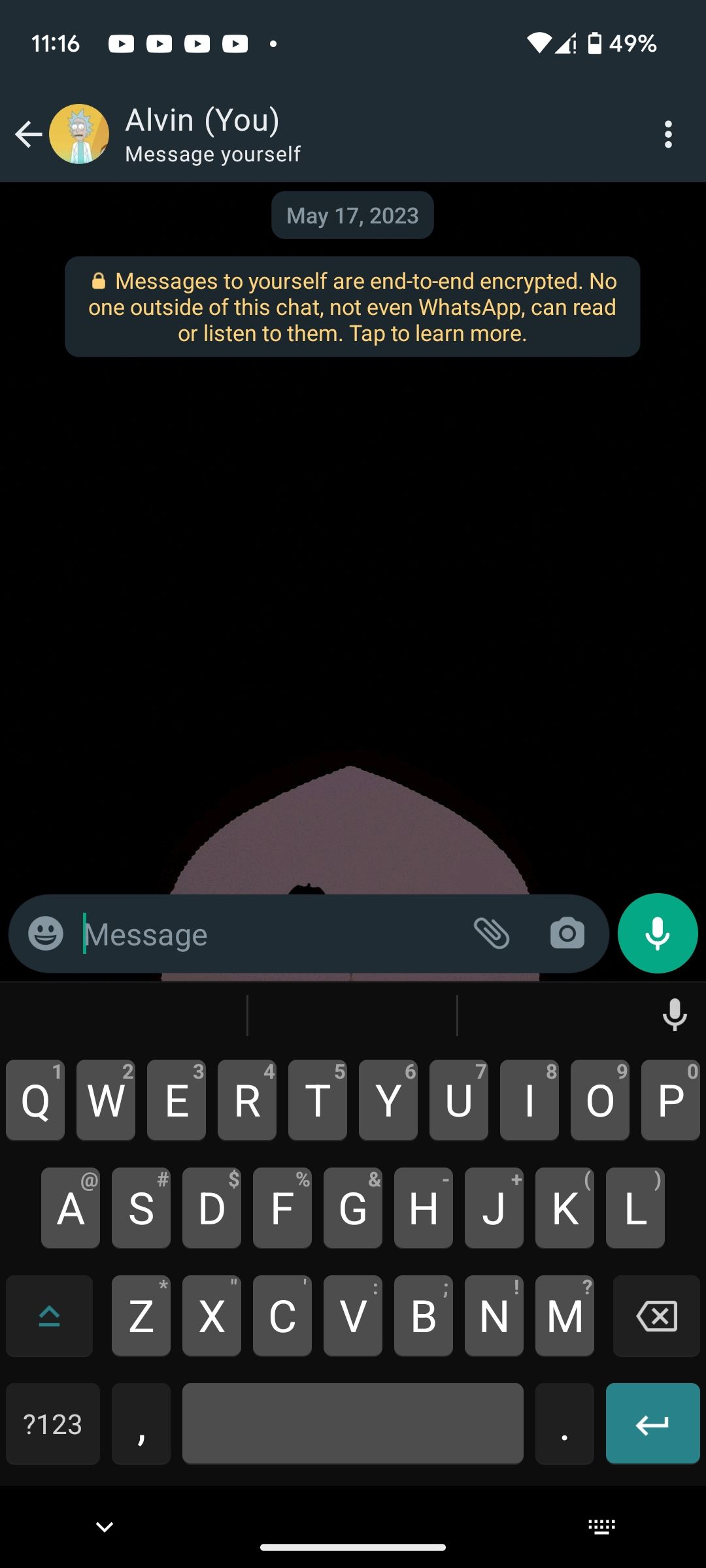
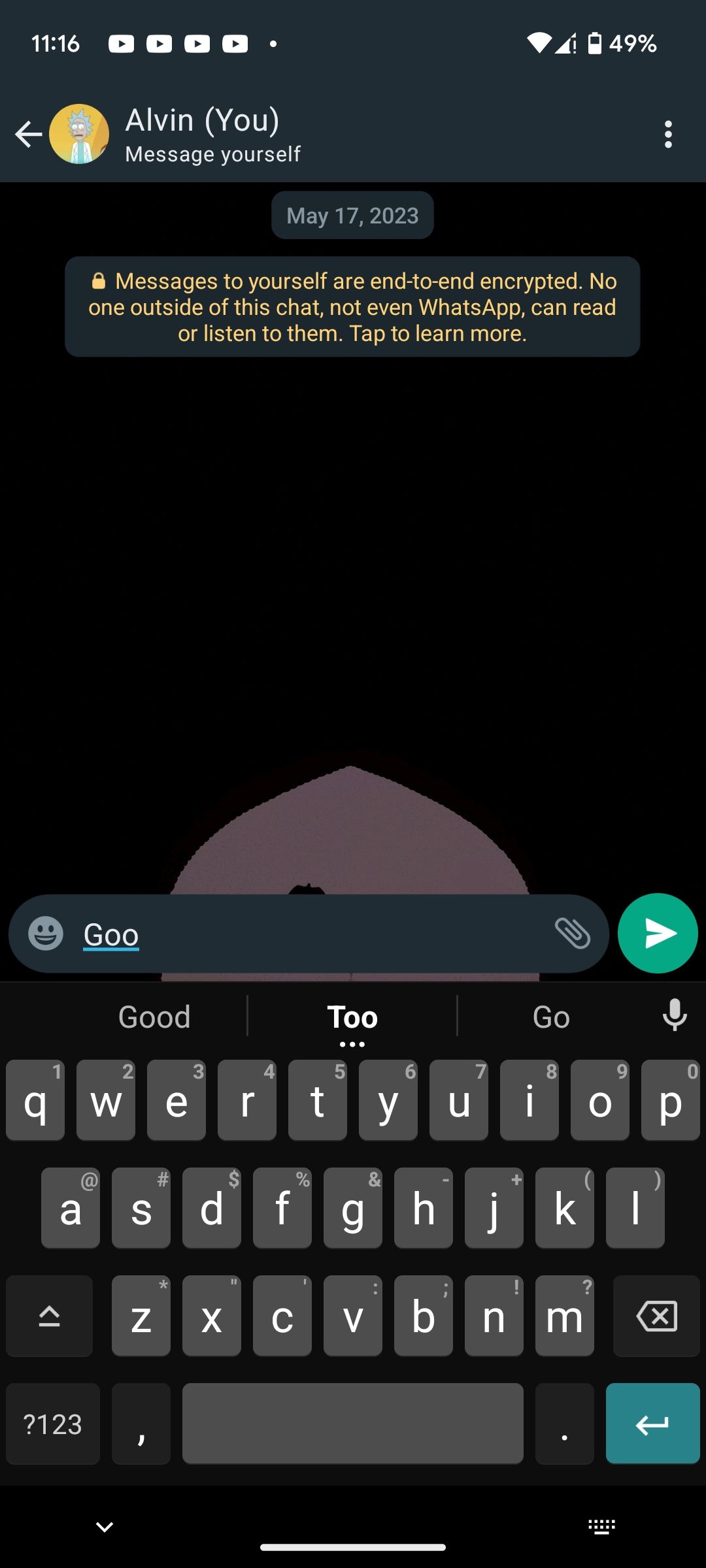
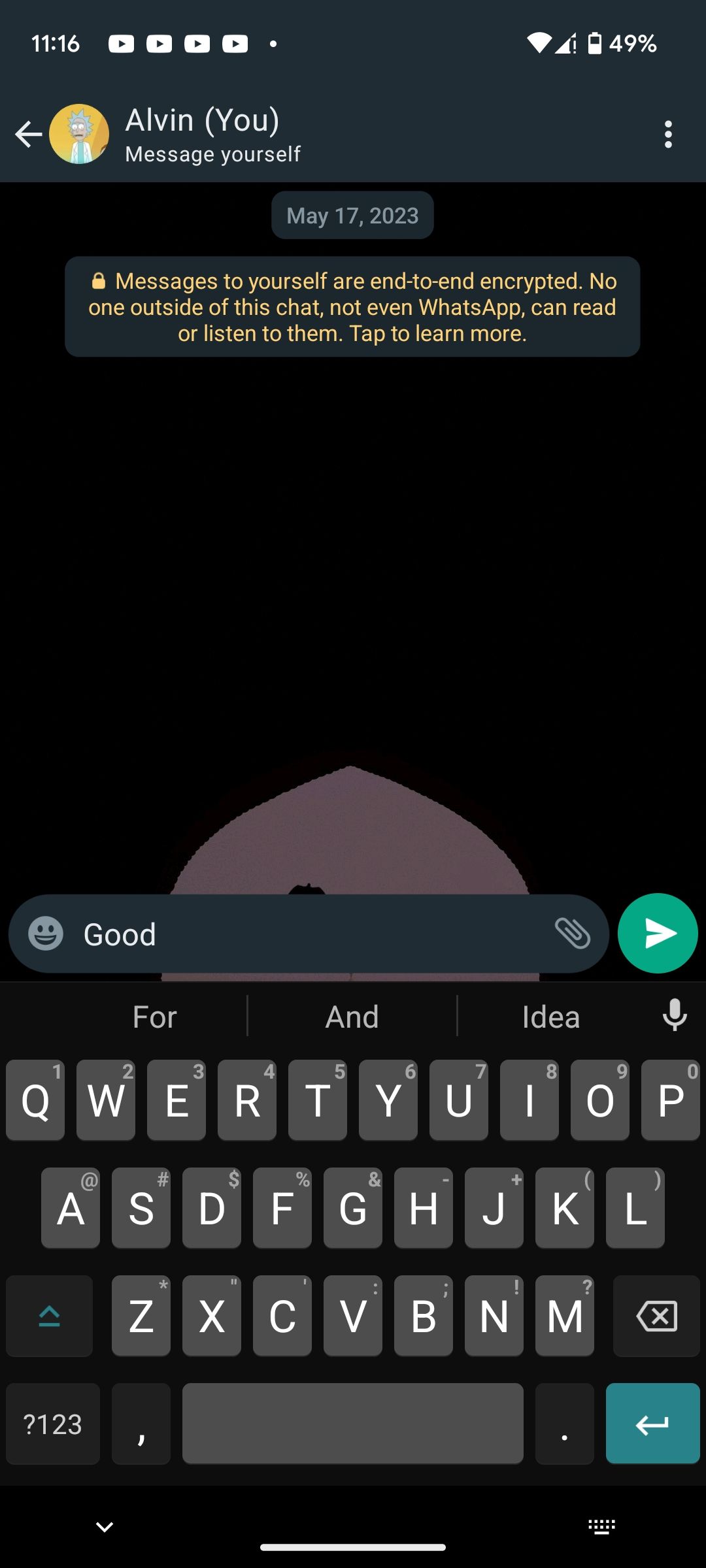
Another alternative you should consider is OpenBoard. OpenBoard is a solid open-source Android keyboard with text predictions and autocorrect suggestions. If you prefer voice typing, the app has an easy-to-access microphone button that wakes up Google Assistant. Like proprietary keyboard apps, it supports a variety of languages, clipboard history, personalized suggestions, and a personal dictionary.
You can customize the layout depending on your preferences, but the default options include QWERTY and QWERTZ. You can also customize the keyboard in other aspects as well, like size, theme, night mode, key borders, and more.
OpenBoard is not available in the Google Play Store, so you need to sideload it via F-Droid, an open-source alternative to Google Play Store.
Download: OpenBoard (Free)
4. Simple Keyboard
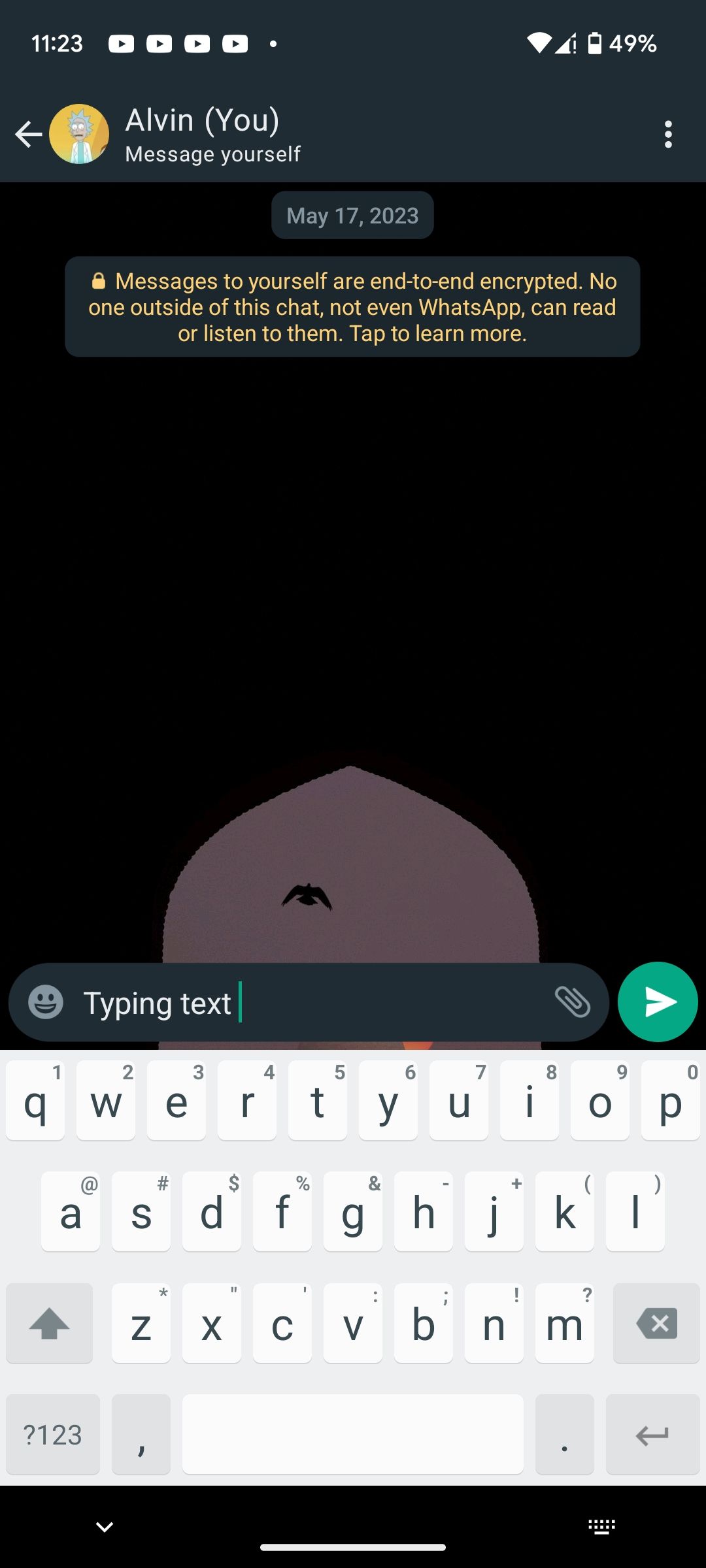
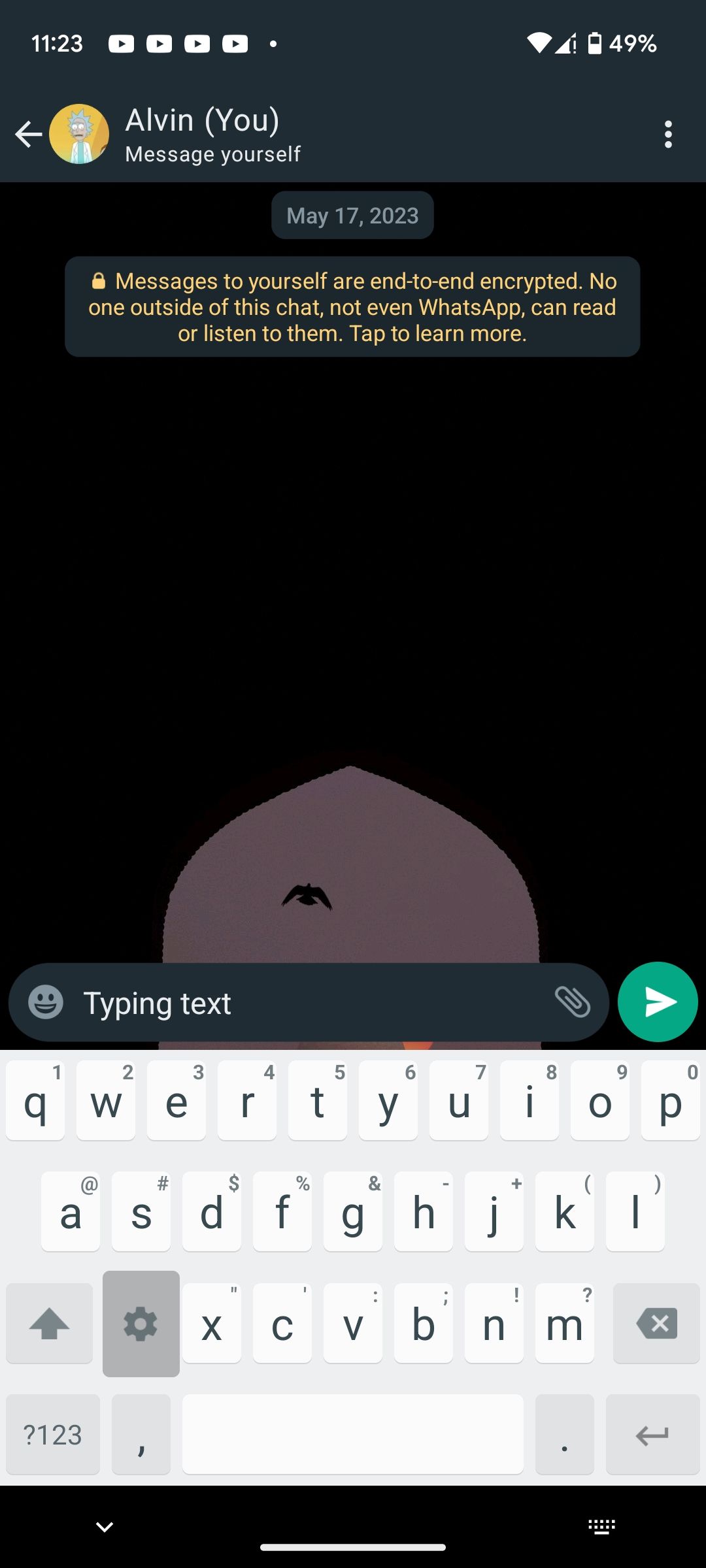
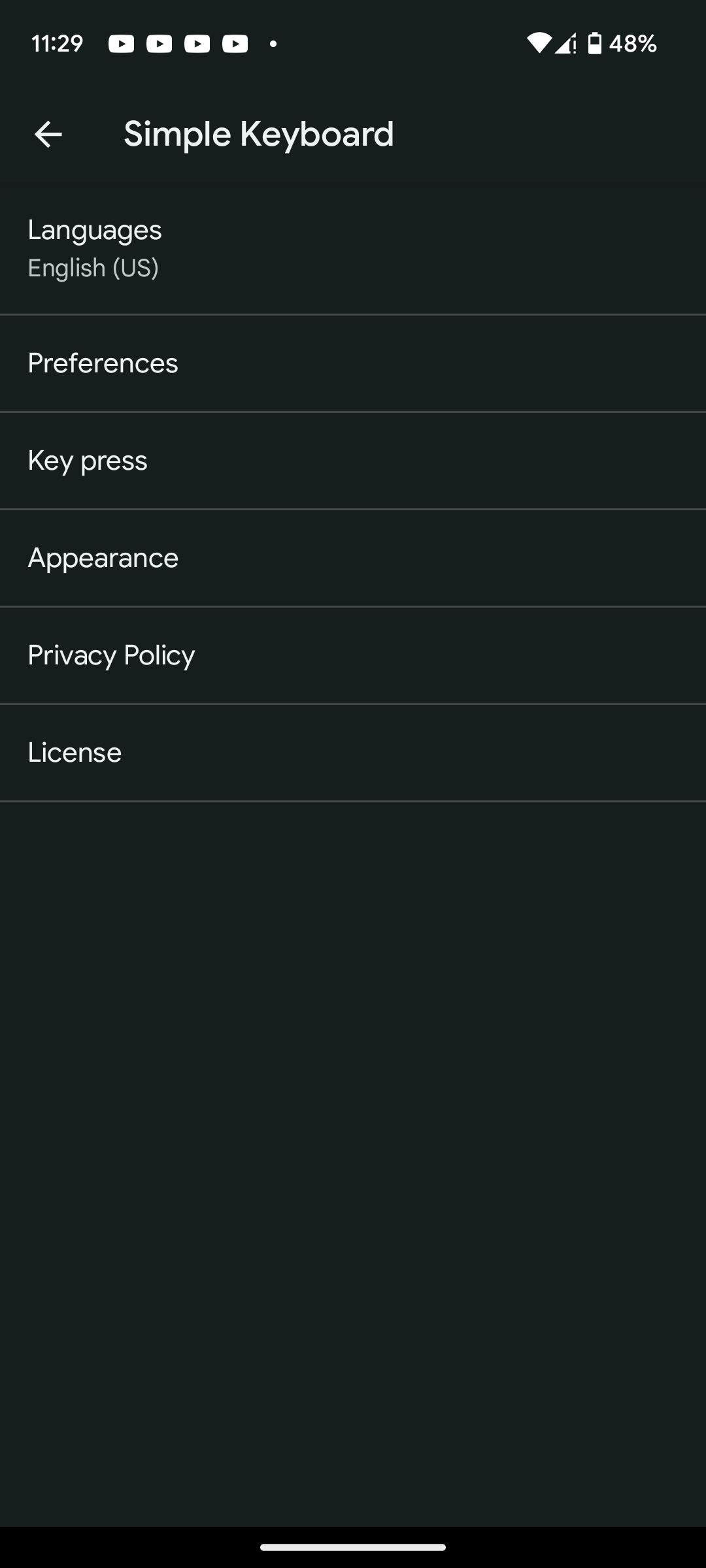
Simple Keyboard has garnered over a million downloads in the Play Store. It is made by the developer behind Tiny Keyboard. It has a clean and simple user interface and allows for customization of the theme and height of the keyboard, among other preferences.
Tap and hold the comma button, then tap the Settings icon to view the keyboard's settings. You can, for instance, change the keyboard layout, hide special characters, choose a theme or select a custom color as your keyboard theme, change the keyboard's height, and more. Simple Keyboard also supports some advanced features like swipe to delete.
Download: Simple Keyboard (Free)
5. Unexpected Keyboard
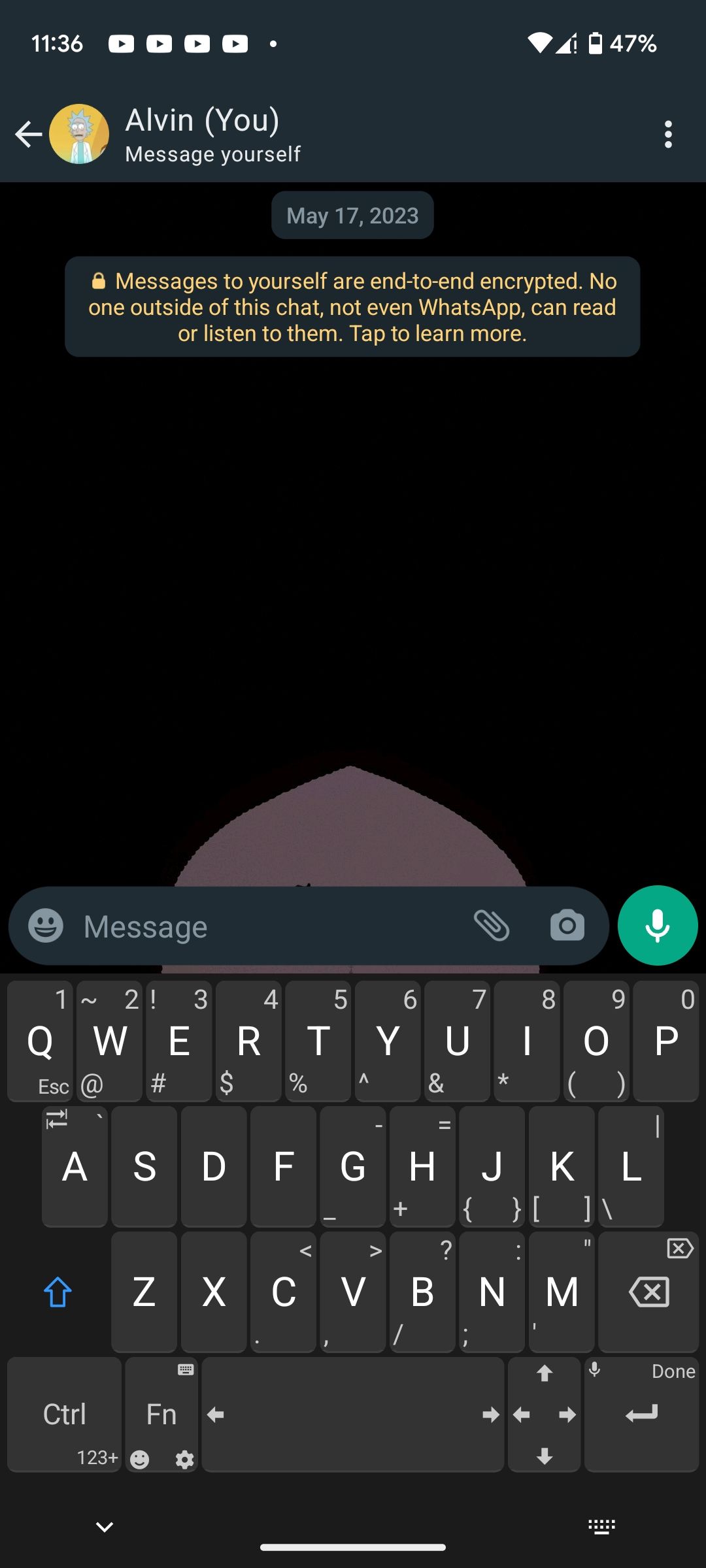
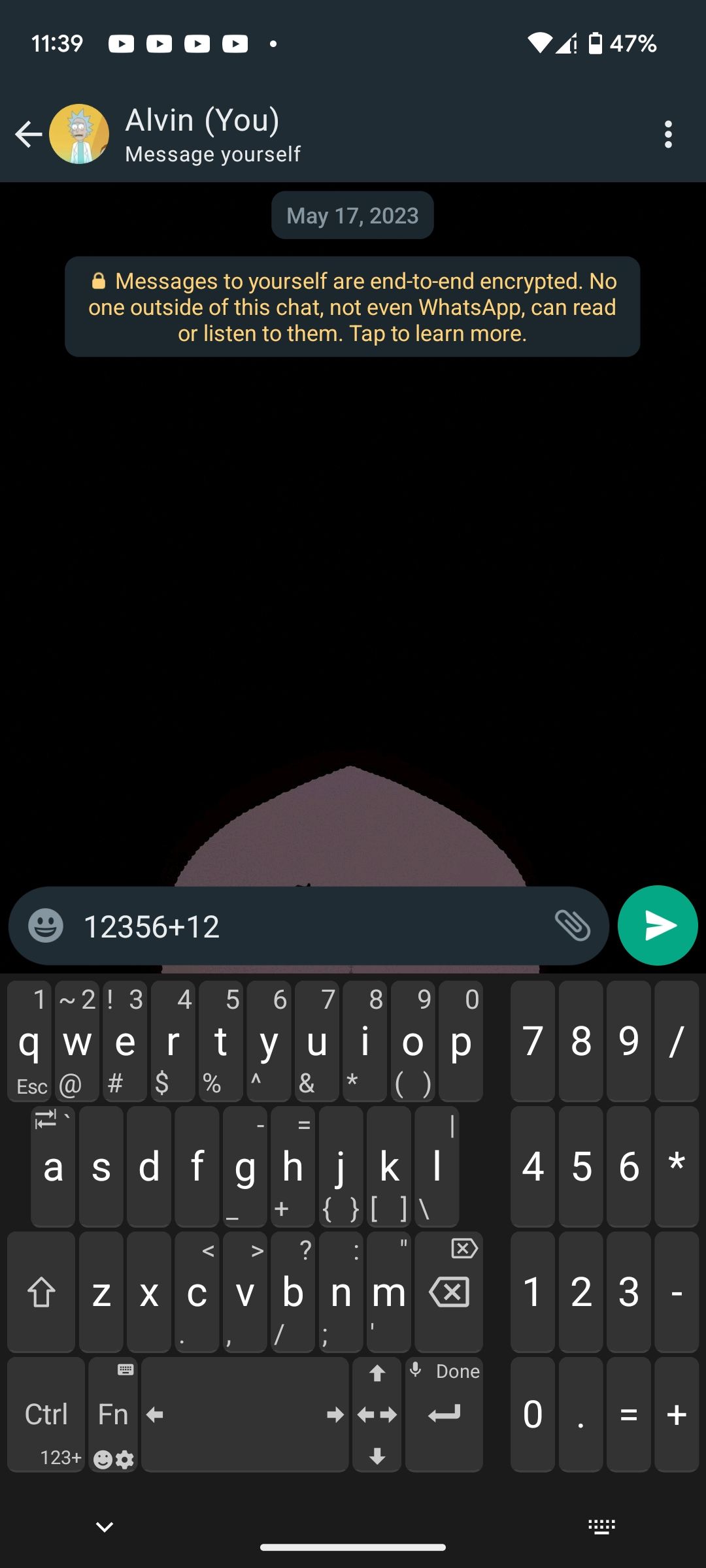
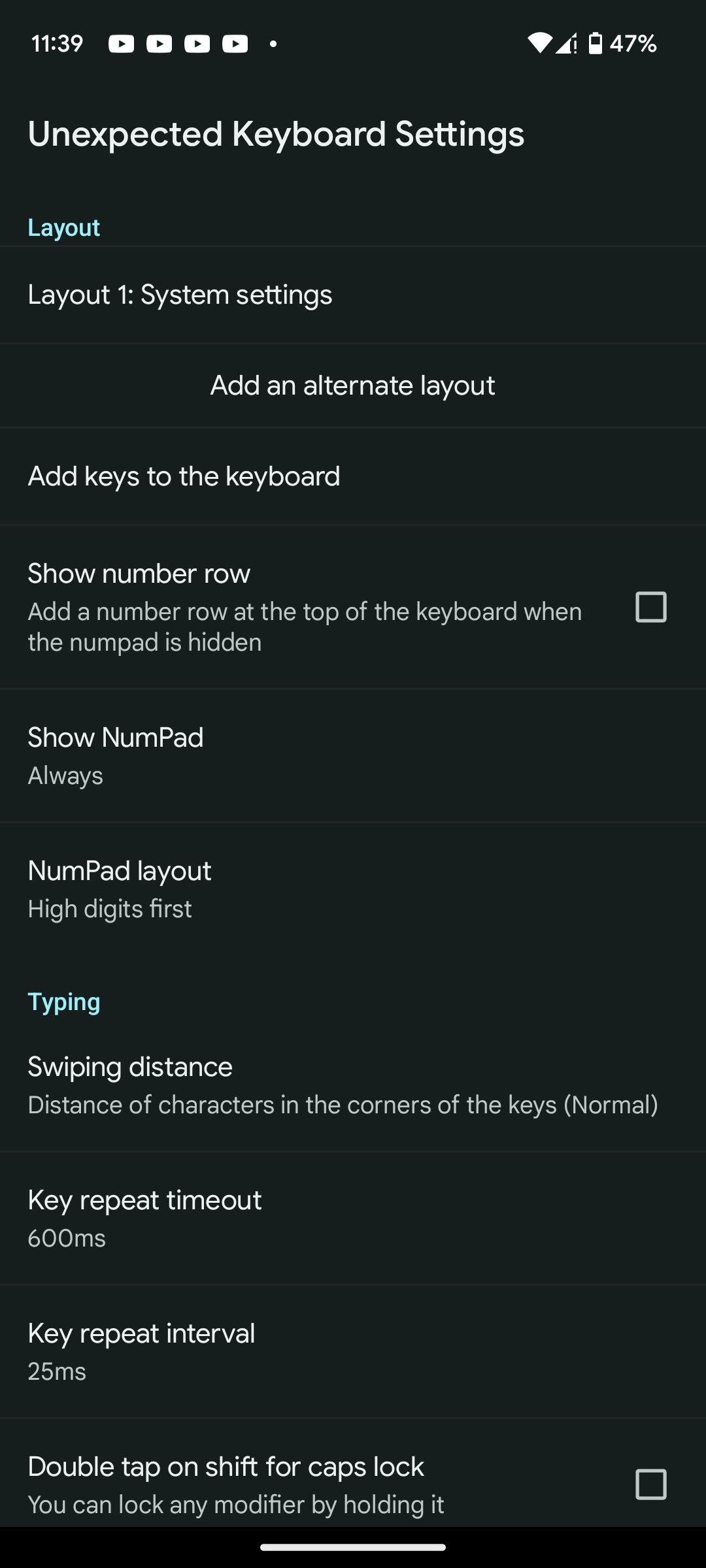
Unexpected Keyboard stands out among open-source Android keyboard apps by including more than just basic features. First, it has buttons you wouldn't normally find on virtual Android keyboards, like Ctrl and Function buttons. The interface looks busy relative to other keyboards in this list, but this could be what you want if you want to code on your Android phone.
Unexpected Keyboard includes emoji support, which is not found in most apps on this list. Like other keyboard apps, it lets you customize different aspects to suit your preferences.
Download: Unexpected Keyboard (Free)
Which Open-Source Keyboard Should You Choose?
Customization has always been at the heart of what makes Android such a compelling operating system. If you're looking for a keyboard that's nearly as good as a mainstream proprietary keyboard, go for AnySoftKeyboard or OpenBoard.
Unexpected Keyboard is great for programming, while Tiny Keyboard and Simple Keyboard are solid options if you're after something simple and straightforward.

